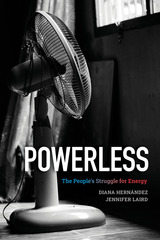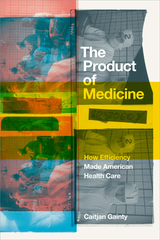
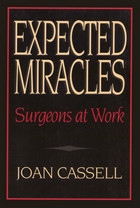
Expected Miracles explores the world of surgeons from their own perspective—how they perceive themselves, their work, colleagues, and communities. Recognizing that surgery is an art, a craft, a science, and a business, Joan Cassell offers, through poignant, painful, and thrilling descriptions, a vivid portrayal of the culture of surgery.
Cassell has entered a realm where laypersons are usually horizontal, naked, and anesthetized. Using the central metaphor of the surgical "miracle," she illuminates the drama of the operating room, where surgeons and patients alike expect heroic performance. She takes us backstage to overhear conversations about patients, families, and colleagues, observe operations, eavesdrop on gossip about surgeons’ performances, and examine the values, behavior, and misbehavior of surgeons at work.
Said one Chief of Surgery, "You couldn’t have a good surgeon who didn’t believe in the concept of the Hero." Following this lead, Cassell explores the heroic temperament of those who perform surgical "miracles" and finds that the demands and pressures of surgical practice require traits that in other fields, or in personal interactions, are often regarded as undesirable. She observes, "surgeons must tread a fine line between courage and recklessness, confidence and hubris, a positive attitude and a magical one." This delicate balance and frequent imbalance is portrayed through several character sketches. She contrasts the caring attention and technical mastery of The Exemplary Surgeon with the theatrical posturing of The Prima Donna and the slick showiness and questionable morals of The Sleazy Surgeon.
She also identifies the attributes that surgeons admire in each other. They believe that only peers can really evaluate each other, and, while doctors might not speak negatively about colleagues in public, the community of surgeons exerts considerable pressure on its members to perform competently.
Unlike "doctor-bashing" chronicles, Expected Miracles seeks to understand the charismatic authority of surgeons, its instability, and its price-to surgeons and to patients.
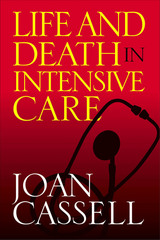
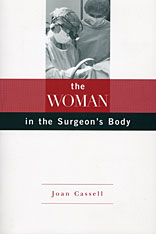
Surgery is the most martial and masculine of medical specialties. The combat with death is carried out in the operating room, where the intrepid surgeon challenges the forces of destruction and disease. What, then, if the surgeon is a woman? Anthropologist Joan Cassell enters this closely guarded arena to explore the work and lives of women practicing their craft in what is largely a man's world.
Cassell observed thirty-three surgeons in five North American cities over the course of three years. We follow these women through their grueling days: racing through corridors to make rounds, perform operations, hold office hours, and teach residents. We hear them, in their own words, discuss their training and their relations with patients, nurses, colleagues, husbands, and children.
Do these women differ from their male colleagues? And if so, do such differences affect patient care? The answers Cassell uncovers are as complex and fascinating as the issues she considers. A unique portrait of the day-to-day reality of these remarkable women, The Woman in the Surgeon's Body is an insightful account of how being female influences the way the surgeon is perceived by colleagues, nurses, patients, and superiors--and by herself.
READERS
Browse our collection.
PUBLISHERS
See BiblioVault's publisher services.
STUDENT SERVICES
Files for college accessibility offices.
UChicago Accessibility Resources
home | accessibility | search | about | contact us
BiblioVault ® 2001 - 2025
The University of Chicago Press


